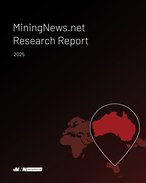This article is 6 years old. Images might not display.
A fellow mining hopeful applying for a concession including the Jan Karski soft coking coal project has had its appeal of a 2013 application refusal rejected, Prairie said.
"It has been concluded that granting a mining concession to Bogdanka would be a serious violation of the provisions of Poland's Geological and Mining Law (2011), and would be contrary to the rule of law as embodied in the Polish constitution," Prairie said.
But Prairie's time in Polish courts is not over yet.
The company also said its efforts to move the production deadline at Debiensko from 2018 to 2025 had been denied by Poland's environment ministry.
"Preliminary legal advice obtained by Prairie indicates that the MoE's decision is fundamentally flawed, fails to comply with Polish, EU and international law, and demonstrates yet further evidence of the discriminatory treatment faced by Prairie as a foreign investor in Poland," the company said.
Prairie has been working at pushing back the deadline for two years, it said, and will now appeal the decision.
The ministry could "limit or withdraw" the concession rights, Prairie said.
Debiensko would be a 4 million tonne per annum hard coking coal project, after a spend of around US$500 million, according to a 2017 scoping study.
Jan Karski would produce 8Mtpa of semi-soft coking coal and needs around $630 million to get started.
Prairie said in its September quarter results it was still in talks with Polish coal miner JSW about a tie-up.
Prairie's closed 3.7% lower at A38.5c. Its shares also trade in London.























